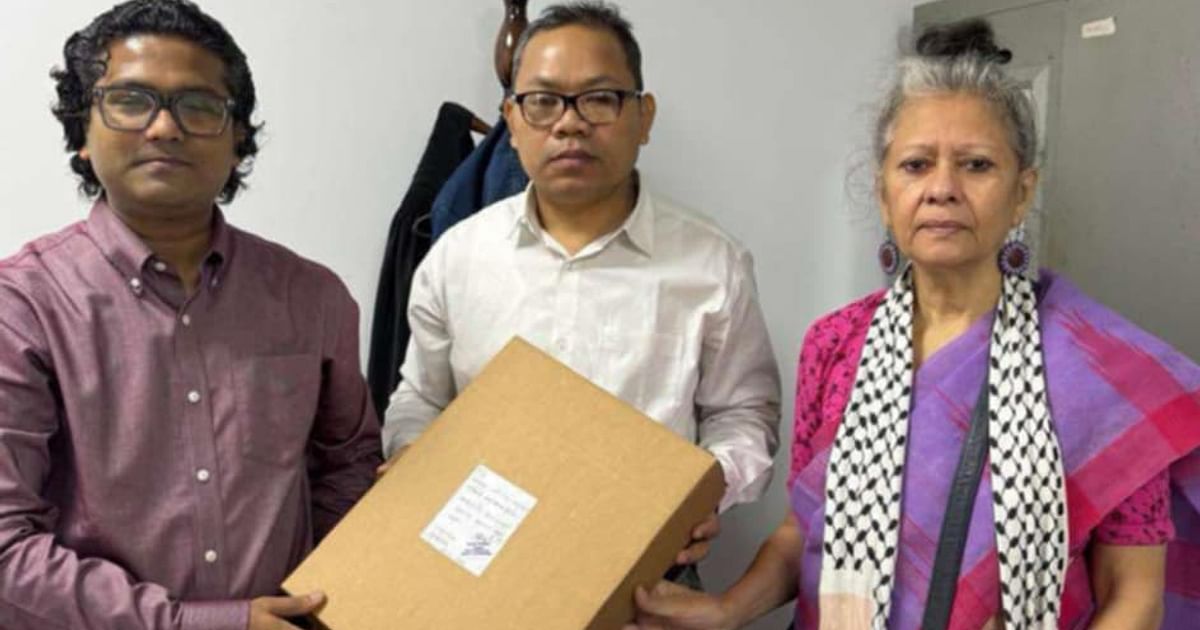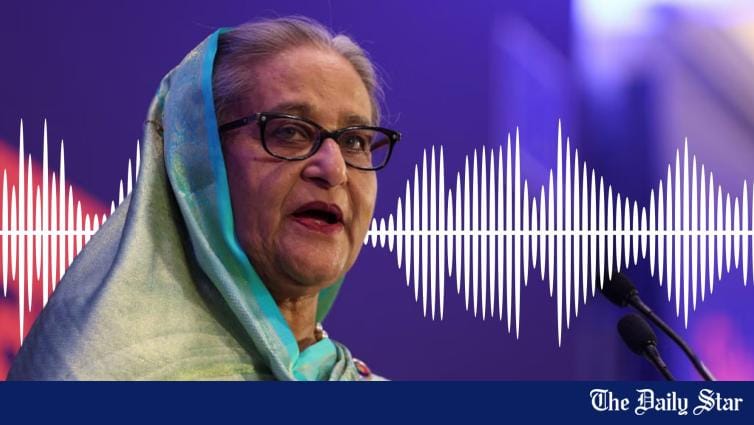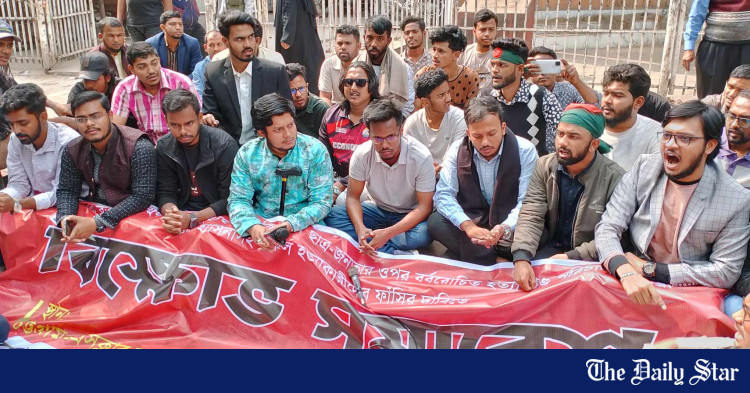Saif
Senior Member
- Jan 24, 2024
- 12,819
- 7,070
- Origin

- Residence

- Axis Group

- Copy to clipboard
- Thread starter
- #49

Michael Chakma lodges complaint with ICT against Hasina, 8 others
The UPDF leader also handed over a towel (gamchha) to have used for blindfolding during his kidnapping to the ICT.
Michael Chakma lodges complaint with ICT against Hasina, 8 others
BSS
Dhaka
Published: 30 Dec 2024, 22: 59

Michael Chakma, a leader of the United Peoples Democratic Front (UPDF), on Monday filed an allegation of enforced disappearance with International Crimes Tribunal (ICT) against ousted prime minister Sheikh Hasina and eight others.
The UPDF leader also handed over a towel (gamchha) to have used for blindfolding during his kidnapping to the ICT.
ICT Prosecutor Abdullah Al Noman told the journalists that the complainant presented a towel (ganchha) to the prosecution which was used for tying his eyes during the abduction as evidence.
The UPDF leader also described the glassed circled room (Ayna Ghar) where he was forced to stay for more than five years and four months to the ICT.
The UPDF called a siege programme in 2013 during a Khagrachhari tour of the then prime minister Sheikh Hasina when Sheikh Hasina threatened blockaders including me, he added.
The law enforcers questioned him several times during the period of his enforced disappearance as he along with his party men opposed to the Chittagong Hill Tracts Peace accord.
He said he thought that for these reasons, he was kidnapped by the law enforcing agencies.
Michael Chakma was taken away by unidentified quarters from Kanchpur area under Narayanganj district on April 9 in 2019 while returning to Dhaka after his organizational work.
He was released from the confinement on August 7 this year after the fall of fascist Sheikh Hasina's government in the face of the July-August uprising.
BSS
Dhaka
Published: 30 Dec 2024, 22: 59
Michael Chakma, a leader of the United Peoples Democratic Front (UPDF), on Monday filed an allegation of enforced disappearance with International Crimes Tribunal (ICT) against ousted prime minister Sheikh Hasina and eight others.
The UPDF leader also handed over a towel (gamchha) to have used for blindfolding during his kidnapping to the ICT.
ICT Prosecutor Abdullah Al Noman told the journalists that the complainant presented a towel (ganchha) to the prosecution which was used for tying his eyes during the abduction as evidence.
The UPDF leader also described the glassed circled room (Ayna Ghar) where he was forced to stay for more than five years and four months to the ICT.
The UPDF called a siege programme in 2013 during a Khagrachhari tour of the then prime minister Sheikh Hasina when Sheikh Hasina threatened blockaders including me, he added.
The law enforcers questioned him several times during the period of his enforced disappearance as he along with his party men opposed to the Chittagong Hill Tracts Peace accord.
He said he thought that for these reasons, he was kidnapped by the law enforcing agencies.
Michael Chakma was taken away by unidentified quarters from Kanchpur area under Narayanganj district on April 9 in 2019 while returning to Dhaka after his organizational work.
He was released from the confinement on August 7 this year after the fall of fascist Sheikh Hasina's government in the face of the July-August uprising.













